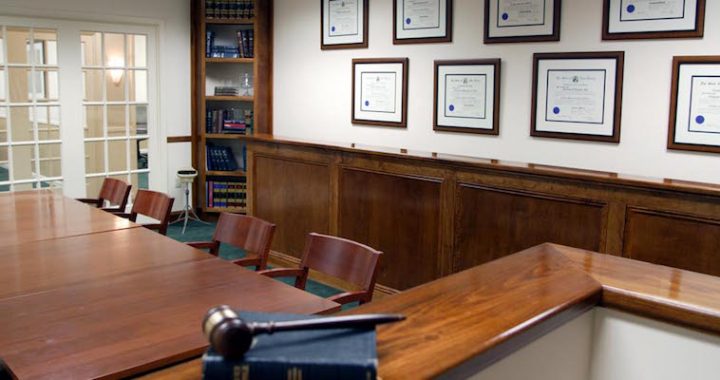I was seated in a small, crowded, Somerset County municipal courtroom, located above the town’s police headquarters, surrounded by attorneys and the band of unfortunates summoned to appear that night. Having just waited in a narrow hallway to speak with the prosecutor, who sat at a conference room table surrounded by this town’s “finest,” I was back in the courtroom to report the status of my client’s case to the judge.
I had never appeared before this judge before. He spoke in a calm, conversational, almost friendly manner to defendants and attorneys appearing before him. There was an ease and a grace about him. He looked professorial in his robes. Most surprisingly, when addressed by a defendant in Spanish, he continued the dialogue replying in Spanish, not missing a beat. I don’t know who was surprised more that night by the exchange, me or the defendant. It would not be the last time I appeared before the Honorable William Kelleher.
My most recent appearance before him was a week or so ago. It was then he mentioned, matter-of-factly, that he would be stepping down from the bench at the end of the year. And so would end a judicial career that began in the Somerville Municipal Court 38 years earlier. In that time, Judge Kelleher sat for 31 years in Branchburg, 25 years in Raritan Borough, and 18 years in Bridgewater. Most recently, he was designated by Chief Justice Rabner as the Presiding Judge of Vicinage 13, which includes Somerset, Hunterdon and Warren Counties, a position he would hold for seven years. His career though, would be remembered not so much for what he did, but how he did it.
One prosecutor described Judge Kelleher as “the ultimate professional,” treating all before him with the “utmost respect,” never forgetting defendants were innocent until proven guilty by proof beyond a reasonable doubt. Court staff told me that “Judge K” was someone they could go to with a question, and he always either knew the answer or knew where to find it. Defense counsel regularly appearing before him described him as the fairest judge they had ever appeared before, who could be tough but always listened to arguments. Frankly, I do not know anyone in the Municipal Court world who not only liked Bill Kelleher but respected him as a judge and as a man.
I had my own experiences before him, some of which are my fondest memories as a trial attorney in the Municipal Courts of New Jersey. One, above all others, remains in my mind.
Before the trial had begun, we demanded production of all digital discovery. Mobile video recordings had been supplied, but the police record room representative insisted that in-station recordings were never created and did not exist. These recordings were crucial to show how the defendant appeared in a controlled, well-lit environment. More important, they would demonstrate whether the breath test was properly administered.
At the trial that followed, the officer testified as to events leading up to my client’s arrest, assisted by his detailed investigation report, claiming very little recall of those events and an ongoing need to “refresh his recollection.” However, while the same report included few details about administration of the breath test back at the station, the officer claimed perfect recollection as to breath test administration with little or nothing to refresh that recollection.
With some frustration and incredulity, I asked the officer on cross whether he had any other written record of what happened when the breath test was administered, fully expecting a response in the negative, which he gave. Even more frustrated, I then asked whether any video recording of my client’s breath test had been created. To my surprise, and to the surprise of everyone in that courtroom, he replied that such a recording had in fact been created. Obviously, his response was totally unexpected based upon what I had been previously told by police records, not to mention what I knew from representing clients in prior DWI matters in the same town over the years.
With this response, Judge Kelleher, the prosecutor and I popped up in our chairs as if an electric charge engaged in our seats. The judge then looked over to the witness stand and asked whether the videos were preserved, to which the officer again responded in the affirmative. It was at this time, the judge asked the officer if he would go back to the headquarters and request that the chief of police return to the courtroom. Several minutes later, the chief appeared in his starched white uniform shirt. Judge Kelleher then asked him to take the stand and inquired whether I would like to examine the chief.
The chief testified that the new police station had video cameras throughout the building and that images were retained for two years. Judge Kelleher then politely thanked the chief who stood down. The judge then ended the court session, asking us to discuss possible resolution of the matter, which occurred the next day.
“Do justice, love mercy and walk humbly with the Lord.” That is the admonition of the prophet Micah. Bill Kelleher got it right.
Peter H. Lederman is a partner with Lomurro, Munson, Comer, Brown & Schottland in Freehold. His practice is limited to representing defendants charged with DWI and related offenses.
